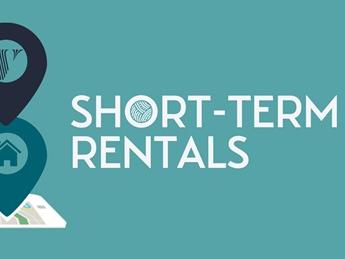Short Term Rentals and Speculation Taxes

STRs and SVTs – What’s with this government intervention?
As many of us have heard, the provincial government of British Columbia recently made two major policy announcements to advance their agenda of providing more and affordable housing in the province. The first policy announcement was a change to the way Short Term Rentals (STRs) are both permitted and regulated. The second, less widely known announcement, was with respect to the expansion of the Speculation and Vacancy Tax. The following article will review both policy announcements respectively.
STRs – What are they? Why do they matter so much? What changed?
Short-term rentals are defined as properties that rent on a short-term basis – typically less than 30 days (although this duration has now changed to 90 days or less). They follow a different set of rules than traditional rentals and guests (as they are referred to – not tenants) have limited occupancy rights. Like a hotel, short-term rentals are meant to provide accommodation services primarily for tourists visiting a region for a limited period. Over the past number of years, STRs have become very popular (and lucrative) both from an investment perspective as well as for homeowners to help cover their monthly expenses. In most cities (like Kelowna) the municipal authorities regulated this component of the real estate market (through zoning bylaws) as well as possible. By requiring a license for STRs to operate, cities were able to collect fees and keep track of where STRs were located. In most cases, STRs were permitted as a secondary use in primary residences and in specific neighbourhoods (usually with high levels of tourist activity). The downside was that despite some STR operators playing by the rules, many did not. These “shadow hotels” have been a bone of contention for many municipalities.
The provincial government contends that the unbridled expansion of the STR segment of the real estate market (especially by the investment community) has led to a decrease in the amount and availability of longer-term rental units. As a result, the following restrictions (not an exhaustive list) will be brought into effect on May 1, 2024:
-Limit short-term rentals in communities with populations of 10,000 or more to principal residences (plus one secondary suite such as a carriage home or laneway home).
-Eliminate any bylaw exemptions permitting short-term rentals to operate prior to municipal bylaw restrictions being implemented (i.e., grandfathered STRs).
Increased fines for non-compliance from $1000/day to $3000/day.
-MOST IMPORTANTLY – Require STR platforms (i.e., AirBnB and VRBO, etc.) to provide data about their operators to provincial authorities and require operators to provide proof of a valid license to operate prior to advertising.
-Grant Regional Districts licensing powers over STRs and..
-Establish a provincial registry and enforcement body.As you can see, the province is quite serious about restricting the STR market. In addition, many municipalities will be implementing their own regulations that will increase (i.e., add to) the provincial restrictions.
At the federal level of government, income tax deductions for expenses incurred to earn STR income will be prohibited for STRs in regions where STRs are not allowed or for operators who are non-compliant with licensing requirements. As it stands at the time of writing, it appears that the number of STRs will be dramatically reduced once the new regulations have been fully implemented.
SVTs
First introduced in 2018, the “Spec” Tax was put in place to discourage housing speculation and encourage property owners to make their vacant properties available to the long-term rental pool. Property owners who are residents of B.C. and who declare a primary residence are not subject to the tax. If you live outside of Canada (i.e., do not pay most of your taxes in Canada) the tax rate is 2% of the assessed value of the property every year. For example, a property with an assessed value of $1,000,000 could cost an extra $20,000/year if left vacant. For residents of Canada (i.e., people who pay most of their taxes in Canada) the tax is 0.5% of the assessed value per year.
According to a recent survey by the provincial government, the Speculation Tax is directly responsible for the conversion of 20,000+ vacant properties into longer-term housing units. Viewed as a success, the provincial government has expanded the regions where the tax applies and effective the end of 2024 includes most of the Okanagan Valley.
Clearly, the housing crisis is a top policy concern across all levels of government. It is entirely likely that the regulatory environment around housing will continue to be more (not less) restrictive. Real Estate investors looking to cash in on the property market are well advised to do their homework. On the surface, the traditional long-term rental property investment will be the one that emerges unscathed.

